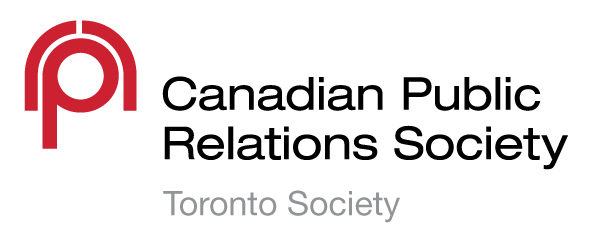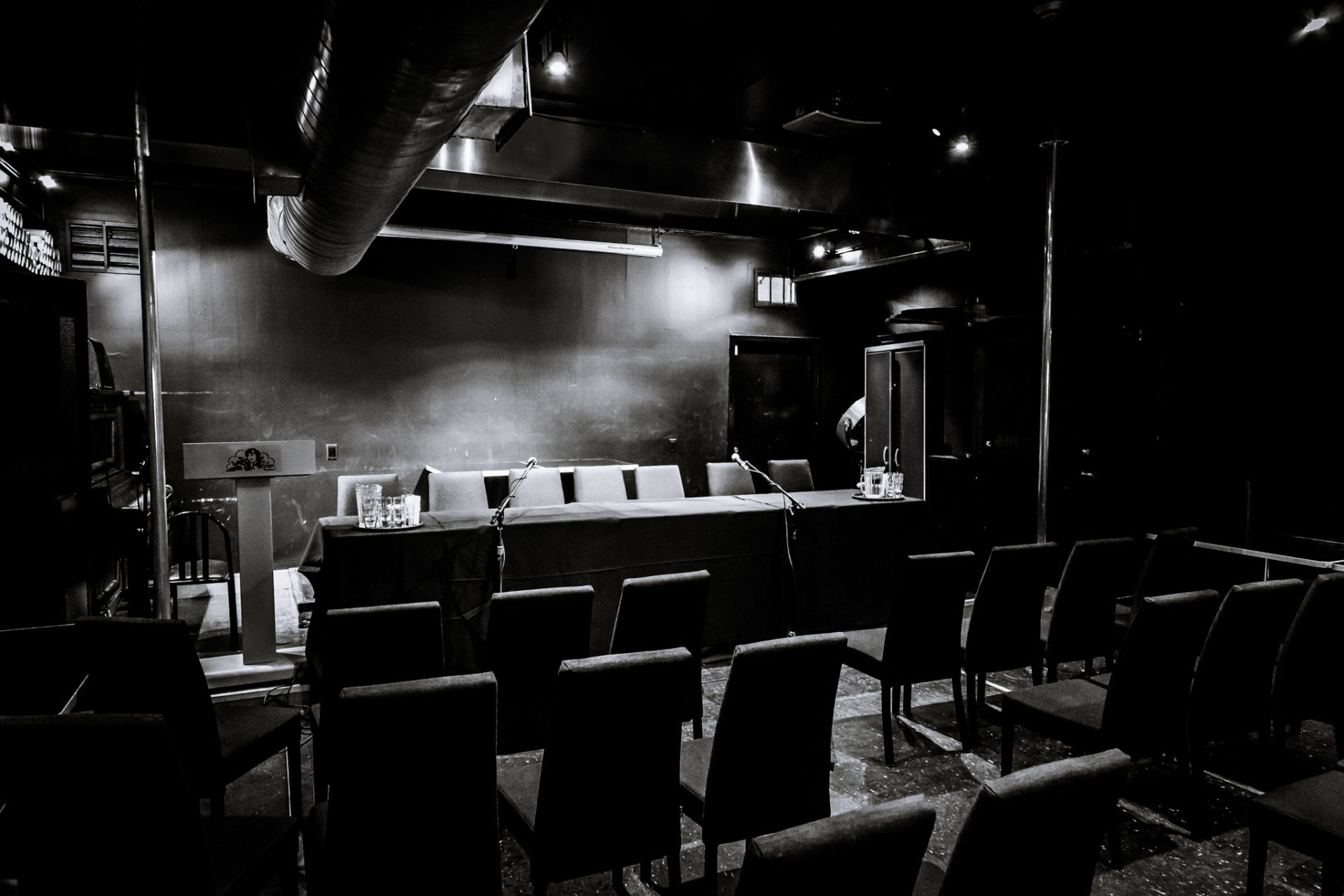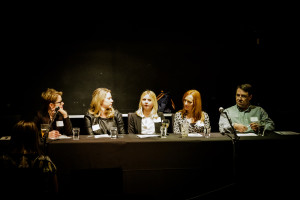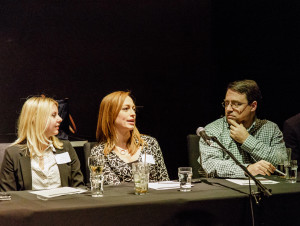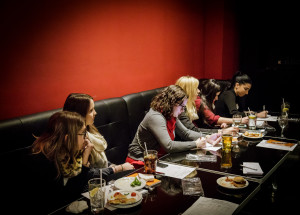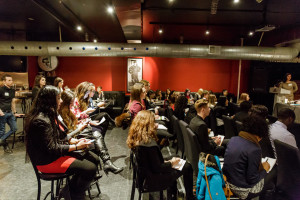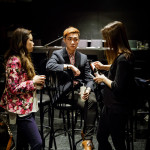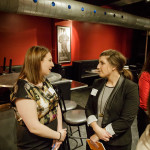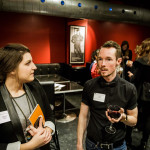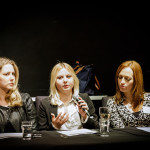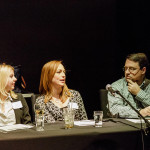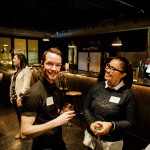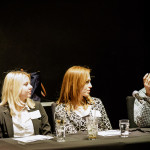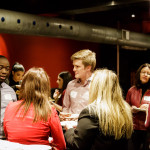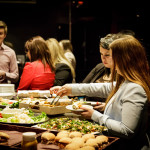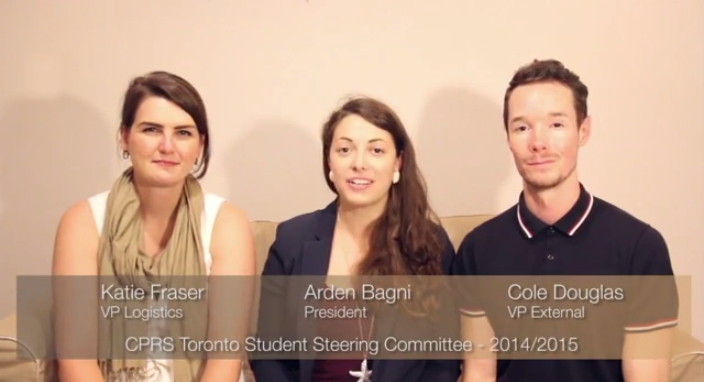Authors: Molly Campbell and Natalie D.
On Thursday, Feb. 12 CPRS Toronto’s Student Steering Committee (SSC) welcomed students to the fourth-annual Building Media Relationships event at the Pilot Tavern. A panel of journalists and PR professionals shared insights with attendees. The panel consisted of Jessica Gold, Shaw Media; Robin Smith, H+K Strategies; Heather MacGregor, LCBO; James Bradshaw, The Globe and Mail; Carolyn Jarvis, Global News; Josh Rubin, Toronto Star and Justine Lewkowicz, Newstalk 1010. CNW Group‘s Nadine Tousignant moderated the animated discussion.
The biggest takeaway? “Just be a decent human being,” said Josh Rubin, followed with a laugh from the crowd. Rubin also outlined having a sense of humour, being respectful and valuing the other journalist’s time as being important, which received agreeing nods from the other panelists.
Media relations is taught in PR students’ coursework, but stepping out of the classroom safety net and doing the real thing is daunting. This event gave aspiring students the opportunity to find out what exactly makes news and how to navigate the media landscape.
When asked how newly graduated PR practitioners can avoid “annoying” journalists, every panelist quickly said they didn’t care about experience or age. What matters to them is the story, considering the audience, pitching an interesting angle, timeliness and relevance. The next most important thing is a practitioner’s attitude; being positive, respectful and doing research goes a long way.
Here are some key tips from the pros:
1. Ask the right questions – Begin media relations campaigns by asking your client about the results they want, said Robin Smith.
2. No matter what realm you work in, always follow the news – Heather MacGregor suggests setting up Google Alerts and monitoring Cision.
3. Don’t burn bridges – “You’re only as good as the relationships you’ve built, as well as your last job,” said Jessica Gold. Be willing to apologize for mistakes.
4. Don’t be annoying – Justine Lewkowicz warned sending too many emails can put you in a journalist’s bad books.
5. Know your medium – Know “who you’re pitching and why you’re pitching,” said Carolyn Jarvis. For TV interviews, choose someone who reads well on TV. For radio interviews, choose someone with an enticing voice. For print stories, get the point and avoid overusing adjectives.
6. Be open to collaboration – Getting caught up trying to control every element of a story can “turn a collaboration into an adversarial relationship” said James Bradshaw. Let the journalist develop the story. Sometimes the end result may not be exactly what you had in mind, but often through collaboration an even better story can be told.
Molly outlines some other Dos and Don’ts from the event:
Do make it personal. You stand out from the crowd when a journalists trusts you.
Do meet with journalists outside deadlines to build trust over time.
Don’t use social media as a public forum to criticize journalists.
Don’t take it personally when a reporter doesn’t respond immediately. Media deadlines can vary from every hour to every 30 minutes.
Don’t be a jerk.
Do have phone etiquette. When calling, always ask, “are you busy right now?”
Natalie is a graduate from Seneca College’s Corporate Communications program.
Molly is a student representative on CPRS Toronto’s SSC.
